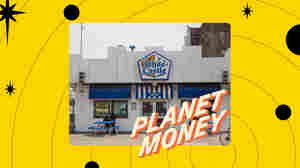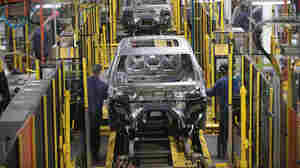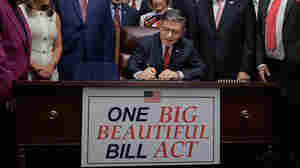Wanna go deeper? Subscribe to Planet Money+ and get sponsor-free episodes of Planet Money, The Indicator, and Planet Money Summer School. Plus access to bonus content. It's a new way to support the show you love. Learn more at plus.npr.org/planetmoney


Planet Money
From NPR
Wanna see a trick? Give us any topic and we can tie it back to the economy. At Planet Money, we explore the forces that shape our lives and bring you along for the ride. Don't just understand the economy – understand the world.
Wanna go deeper? Subscribe to Planet Money+ and get sponsor-free episodes of Planet Money, The Indicator, and Planet Money Summer School. Plus access to bonus content. It's a new way to support the show you love. Learn more at plus.npr.org/planetmoney
Most Recent Episodes
How useful, really, are the steps you can take after a data breach?
How useful, really, are the steps you can take after a data breach?
A general view of the exterior of the U.S. Steel Edgar Thompson Works, on March 20, 2024 in Braddock, Pennsylvania. Jeff Swensen/Getty Images hide caption
Workers assemble Ford vehicles at the Chicago Assembly Plant on June 24, 2019 in Chicago, Illinois. Scott Olson/Getty Images hide caption
Planet Money Summer School in text, with images of a pencil, palm trees and an inflatable pink flamingo. NPR hide caption
A garment factory in Los Angeles. Garment Worker Center hide caption
Summer School 1: A government's role in the economy is to make us all richer
Summer School 1: A government's role in the economy is to make us all richer
Speaker of the House Mike Johnson (R-LA) (C) signs the One Big Beautiful Bill Act during an enrollment ceremony with fellow Republicans in the Rayburn Room at the U.S. Capitol on July 03, 2025 in Washington, DC. Chip Somodevilla/Getty Images hide caption









